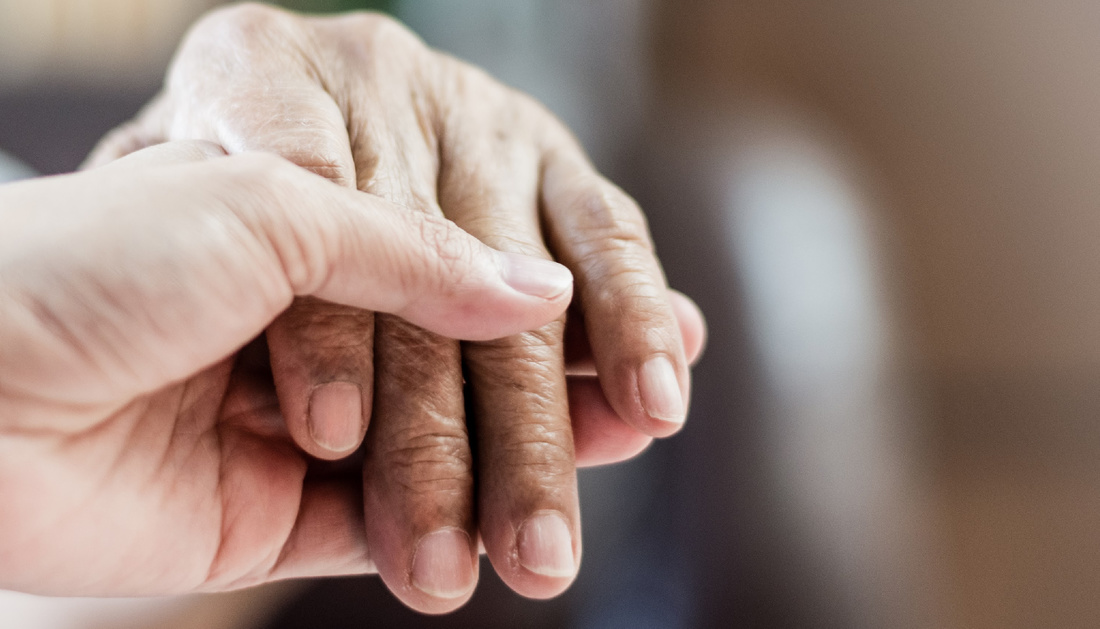
Get a Caregivers Recommendation for Your Loved One
Patients must apply for a Medical Marijuana Identification Card (MMIC) via a county program, not an attending physician or assessment facility. The county offices and contact information page contain contact information for each participating county's MMIC program.
NOTE: This is NOT a substitute for legal advice - please consult a lawyer to discuss your definitive options.

Patients must live in the county in which they submit their application and complete an Application/Renewal Form. Counties require a copy of a physician's recommendation, proof of identity – which can be a valid California Department of Motor Vehicles driver's license, identification card, or other government-issued photo ID card – and proof of residency, which can be a utility bill or DMV vehicle registration. County programs have varying fees, but they can not exceed $100.
Medi-Cal participants get a 50% fee discount, while low-income individuals enrolled in the County Medical Services Program receive no cost. Counties have 30 days to validate an application and five days to distribute the MMIC. Minors may apply as patients or caregivers under specific circumstances, and minors may apply as eligible patients on their own behalf if they are legally emancipated or have proclaimed self-sufficiency.
Appointing a Friend or Family Member as a Caregiver
A main caregiver is described as someone who is responsible for a qualifying patient's housing, health, or safety. Primary caregivers must be at least 18 years old, an emancipated minor, or the parent of a qualifying patient's minor child. Primary caregivers must apply in person with the patient and provide identification. Individuals who have more than one eligible patient must live in the same county. Patients or primary caregivers are limited to 8 ounces (227 grams) of dried marijuana per qualifying patient and are permitted to keep up to six mature or 12 immature marijuana plants.
You qualify as a main caregiver under California's marijuana legislation if you meet the following criteria:
- You have been designated as a licensed medicinal marijuana user for that reason.
- You are perpetually liable for that individual's housing, health, and/or safety.
- The treatment you provide is distinct from the assistance you provide in obtaining medicinal marijuana.
- You started caring for the individual at or before the time you acquired responsibility for medicinal marijuana assistance.
California Medical Marijuana Law: “Primary Caregivers”
California's Compassionate Use Act ("CUA") is codified in Health and Safety Code 11362.5. Additionally, it is referred to as "Prop. 215" or "SB 240."
Although California legalized recreational medicinal marijuana on January 1, 2018, it did not repeal the state's medical marijuana law's safeguards.
Recreational users 21 years of age and older may possess up to one (1) ounce of marijuana or eight (8) grams of concentrated cannabis lawfully. Additionally, they may grow up to six (6) plants.
However, authorized medicinal marijuana users are not always subject to these limitations. Additionally, those under the age of 21 may lawfully consume medicinal marijuana with a physician's prescription and, if they are under the age of 18, with their parents' permission.
As a result, the CUA protects medicinal marijuana users and their main caregivers from prosecution for the following:
- Cannabis possession, Health and Safety Code 11357 HS1
- Cannabis cultivation, Health and Safety Code 11358 HS2
- Cannabis transport or distribution, Health and Safety Code 11360 HS4
You qualify as a main caregiver under the CUA if you meet the following criteria:
- The individual for whom you are caring is legally permitted to consume medicinal marijuana.
- You satisfy the CUA5's legal criteria as a main donor.
- (In November 2016, California voters approved Proposition 64, legalizing recreational marijuana usage for California residents over the age of 21 and allowing California residents to sell recreational marijuana under state-issued licenses. Over time, medical marijuana consumers in California may discover that it is easier to fulfill their medical marijuana requirements by purchasing marijuana from the legal recreational marijuana market. However, as of 2016, California's medicinal marijuana regulations continue to play a critical role.)
Who is permitted to use medicinal marijuana lawfully in California?
California citizens may consume medicinal marijuana lawfully if they meet the following criteria:
- It is suggested or authorized by a qualified physician in California.
- It is used to treat a severe medical condition.
- It is exclusively for the purpose of meeting their genuine medical requirements.
The CUA authorizes the following serious medical conditions:
AIDS
- Anorexia nervosa
- Cancer is a disease that affects both
- Discomfort that persists
- Epilepsy is a medical condition that causes seizures.
- Migraines are a type of headache.
- A main caregiver is defined legally under California marijuana legislation.
What are the legal options available to main caregivers of medicinal marijuana?
Primary caregivers for medicinal marijuana patients have the following rights under the CUA:
- Possess medicinal marijuana for the benefit of another
- Provide the patient with medicinal marijuana.
- Transport a sufficient amount of marijuana for the patient's medicinal purposes.
- Cannabis cultivation and/or production of potent cannabis for patient use
What is the maximum amount of marijuana that a main caregiver may possess and/or cultivate?
Primary caregivers are permitted to possess and/or grow a quantity of marijuana that is reasonably linked to the patient's present medicinal requirements.
According to the legislation, the following sums are deemed reasonable:
- Possession of up to eight ounces of marijuana that has been dried
- Six mature marijuana plants or twelve immature marijuana plants 11.
- If you are charged for having and/or cultivating quantities more than this, you must demonstrate that the amounts are acceptable in light of the patient's present medical requirements.
Do primary caregivers in California need to get a medical marijuana card?
Patients and caregivers do NOT need to possess a California medical marijuana identification card ("MMIC") in order to benefit from the CUA.
Individuals in possession of an MMIC, on the other hand, cannot be arrested for marijuana possession, transit, distribution, or production until the following conditions are met:
- A police officer has a reasonable suspicion that the information on the card is false or fraudulent.
- The card was acquired via deception.
- otherwise violates marijuana statutes (e.g., possession of more cannabis than is necessary to satisfy the patient's legitimate medical requirements, possession for the purpose of selling it, etc.).
- If you do not have an MMIC and are arrested for breaking California's marijuana regulations, you may still use the CUA as an affirmative defense.
 How can I get a main caregiver identification card for medicinal marijuana?
How can I get a main caregiver identification card for medicinal marijuana?
MMICs must be applied for in person at the county health department where the patient resides. They are accessible in all California counties except Sutter and Colusa as of July.
A patient may apply for a main caregiver MMIC on their own. Both you and the patient will need to visit the relevant county health department to acquire one.
For more information, read our post on how to get a California medical marijuana card .
Legal Citations: 1 11357 HS: California Health and Safety Code
(a) Except as otherwise provided by law, anyone who has any concentrated cannabis shall receive jailtime for less than one year or by a fine of not more than five hundred dollars ($500), or by both such fine and imprisonment through Section 1170 of the Penal Code.
(b) Except as expressly permitted by law, any person who has less than 28.5 grams of marijuana, other than concentrated cannabis, commits an offense punishable by a fine of up to one hundred dollars ($100).
(c) Except as otherwise provided by law, any person who has more than 28.5 grams of marijuana, other than concentrated cannabis, shall be sentenced to a maximum of six months in a county jail or to a fine of not more than five hundred dollars ($500), or to both such fine and imprisonment...
2 California Health and Safety Code 11358 HS: Except as otherwise permitted by law, anyone who plants, cultivates, harvests, dries, or processes marijuana or any portion thereof is subject to imprisonment under subsection (h) of Section 1170 of the Penal Code.
3 Concentrated cannabis (hashish) is the marijuana plant's resin that has been separated. Marijuana is defined in California Health and Safety Code 11018 HS as all parts of the Cannabis sativa plant and any compound with the seed or resin.
Additionally, see Attorney General Opinion, 86 Ops. Cal. Atty. Gen. 180 (October 21, 2003) ("Concentrated cannabis is included under the definition of 'marijuana' as used in the 1996 Compassionate Use Act.").
4 California Health and Safety Code 11360 (a): Except as otherwise provided in this section or as authorized by law, anyone who transports, imports into this state, sells or gives away marijuana shall be punished by imprisonment.
5 The term "primary caregiver" refers to the individual designated by the person exempted under this section who has continuously taken responsibility for that person's housing, health, or safety.
6 California Health and Safety Code 11362.d): Sections 11357, relating to marijuana possession, and 11358, relating to marijuana cultivation, shall not apply to a patient, or to the patient's primary caregiver, who cultivates marijuana for the patient's medical purposes upon a physician's written or oral recommendation or approval.
7 A "severe medical condition" is defined in California Health and Safety Code 11362.7 as:
- Syndrome of acquired immunodeficiency (AIDS)
- Anorexia
- Arthritis
- Cachexia is a term that refers to a wasting condition.
- Cancer
- Pain that persists
- Glaucoma
- Migraine
- Muscle spasms that persist for an extended period of time, including, but not limited to, spasms associated with multiple sclerosis
- Seizures, including but not limited to epileptic seizures
- Excessive nausea
Any other persistent or chronic medical symptoms that are one of the following:
- It significantly impairs the individual's ability to engage in one or more significant living activities as specified in the Americans with Disabilities Act of 1990 (Public Law 101-336),
- If left untreated, it may endanger the patient's safety or physical or mental health.
- 11362.5 (e) of the California Health and Safety Code, end note 5.
Additionally, see California Health and Safety Code section 11362.7. (d) The term "primary caregiver" refers to the individual identified by a qualifying patient or a person with an identity card as the person who has continuously taken responsibility for the patient's or person's housing, health, or safety...
Additionally, see People v. Mentch (2008) 45 Cal.4th 274 ("A] defendant claiming primary caregiver status must establish that he or she (1) consistently provided caregiving, (2) independently of any assistance with medical marijuana use, and (3) at the time the individual assumed responsibility for assisting with medical marijuana use.").
11362.765 of the California Health and Safety Code:
(a) Liable to the provisions of this article, the persons indicated in subdivision (b) are not subject to criminal responsibility under Sections 11357, 11358, 11359, 11360, 11366, 11366.5, or 11570 solely for the conduct described in paragraph (b). However, nothing in this section authorizes a person to consume or smoke marijuana in any other way unless specifically allowed by this article, nor does anything in this section enable any organization or individual to grow or sell marijuana for profit.
(b) The provisions of subdivision will be use in the following:
... (2) A primary caregiver who transfer or transports marijuana for medical purposes cannot exceed those outlined in subdivision (a) of Section 11362.77, but only to the primary caregiver's qualified patient or to the person with an identification card who has designated the individual as a primary caregiver...
Kelly, 47 Cal.4th 1008, 222 P.3d 186 (2010).
11362.77 (a) of the California Health and Safety Code: A qualified patient or main caregiver may possess less than eight ounces of dried marijuana per qualified patient. Additionally, a qualified patient or primary caregiver is limited to 6 mature or 12 immature marijuana plants.
However, see People v. Kelly, endnote 11 (holding that a primary caregiver may assert in court as a defense that he or she possessed or cultivated an amount of marijuana that was reasonably related to meeting [the patient's] current medical needs, without regard for the MMP's specific quantitative limitations).
Furthermore, see People v. Trippet (1997), 56 Cal.App.4th 1532, 66 Cal.Rptr.2d. ("Political realities provide considerable wiggle room in implementing section 11360 in situations where a Proposition 215 defense is claimed in conjunction with other accusations... The criterion should be whether the amount carried, as well as the mode, time, and distance traveled, are fairly linked to the patient's present medical requirements. If this is the case, we find that an implicit defense to a section 11360 accusation should and may exist; otherwise, there is none.").
11362.71 of the California Health and Safety Code (e). No primary caregiver with a valid identification card shall be arrested for possessing, transporting, delivering, or cultivating medical marijuana in the amount specified in this article, unless there is reasonable cause to believe the information contained in the card is false or falsified, the card was obtained through fraud, or the card was obtained through deception.
Kelly, end note 10. 13 People v. Kelly, endnote 10.
14 If the patient is unable to do so, contact the county for further information.


.png)